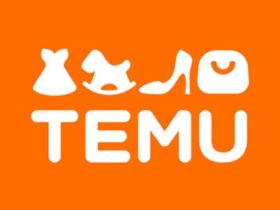According to research conducted by NordVPN, Italian sites have on average 16 trackers that follow and monitor user experience
Online safety is always a very important factor. Every day millions of data circulate around the globe and most of the time we don’t even notice it. This is done by trackeri.e. pixels, cookies or tracking scripts, which collect information about visitors to a site. There are two main reasons: advertising e statistics. In the first case, the sites collect data to offer personalized ads for goods and services that aim to stimulate the user’s buying interest.
In the second, however, it is a question of monitoring the habits of users to understand how they interact with the site itself. Knowing this data helps administrators understand how to develop and customize the site, such as inserting banners on the most visited pages and so on. However sometimes trackers can collect sensitive datasuch as the IP address and even personal data. NordVPN researched this and found that Italian sites have on average 16 trackers each. But let’s go in order and see in more detail the data collected by the Panamanian company.
![]()
Social media, ecommerce and health sites are the main suspects in NordVPN’s research
These three types of sites, among the Italian ones passed under the magnifying glass, are the richest in trackers with a number that it fluctuates between 20 and 25 per site. Most of the trackers detected were owned by third parties. About 30% of third-party trackers belonged to Google, 11% to Facebook and 7% to Adobe who use the collected data for marketing purposes. Daniel Markusondigital privacy expert at NordVPN, said the following:
As a rule, trackers are embedded in the code of websites and are difficult for a normal user to detect. Information collected by trackers may include a user’s IP address and location, browsing history, clicks on a website, which items users have viewed and for how long, as well as browser and device data. used.
Researchers looked at the 100 most popular websites in 20 countries around the world. Using three different tracker blockers, they were able to see how many trackers (for example in the form of cookies or tracking pixels) those websites use to acquire more information about their users. When taken individually, this information may not be very useful, but all together they allow you to create a very detailed profile of each user which can be later resold to third party companies. These use the various profiles to create targeted advertisements that “follow” the user on each page they visit.
Of course, big companies aim for just that, but the worst case scenario occurs in case cybercriminals get their hands on the data. They could work out a detailed portfolio about a user and use it at their expense in a phishing attack, creating a highly personalized and credible message.
![]()
How to avoid tracking of trackers on Italian sites and beyond
There are various ways to prevent tracking from becoming a weapon used against ourselves. The first is certainly that of use a VPN (Virtual Private Network) which allows you to hide your IP address and location from all third parties, including your internet service provider, cybercriminals, network administrators and advertisers.
It would be very useful too installing a tracker blocker which prevents the browser from collecting personal information and can also act as an ad blocker. Some tracker blockers, such as Threat Protection by NordVPN, they offer additional cyber security features, such as malware protection. It is also possible to have a Internet browser tailored for those who care about online privacy: no autosync, spell check, autofill or plug-in.
In short, only small tricks are enough to keep our experience on the web safer. If you are looking for more details about the research carried out by NordVPN, we refer you to the official page. Do you already use the right precautions to avoid being tracked? Let us know yours in the comments. In order not to miss further news related to the web and social universe, keep following the pages of everything!















Leave a Reply
View Comments